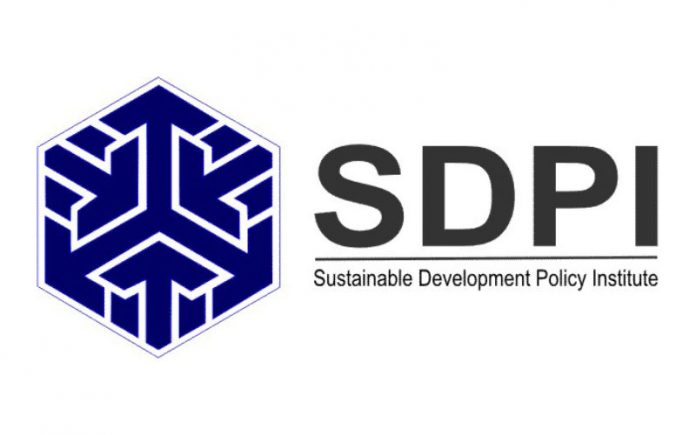Ali Jabir
ISLAMABAD, Jan 15 (APP):The experts at a webinar on the potential of agricultural food systems and lessening climate impacts have underscored the need to enhance the extensive flow of information to the stakeholders including media and manage the data governance for the advanced studies lying on the shelves to revolutionize the agrifood systems.
This was the gist of the Monday series webinar of the Sustainable Development Policy Institute (SDPI) titled “Potential of Agrifood Systems and Mitigating Climate Impacts” held here that was participated virtually by many online participants including members of academia, media and professionals.
Opening the discussion, the Executive Director, SDPI Dr Abid Qaiyum Suleri said food is a necessity and climate change is a reality that threatened its access and availability to the masses due to environmental degradation.
He said the year 2023 was declared the hottest year in our history and La Nina and El Nino impacts were creating havoc in the countries bearing the burden of its effects. However, it is important to understand their impacts on the agriculture and food sectors.
Dr Suleri mentioned that in adverse weather scenarios services and manufacturing sectors can halt their services but the food and agriculture sectors will face irreversible impacts of crops and species loss due to shift in weather patterns.
He said, at the COP-28 moot, the FAO’s baby step of producing a report on food system sustainability underlined the target of 32 percent CO2 removal from the crop sector through different strategies which was a starting step but rather a positive one in the right direction.
He mentioned that the SDPI is conducting the dialogue as part of its series of efforts after its hackathon held before its flagship SDC conference in 2023 on food and agriculture with the support of the Canadian mission in Pakistan.
The UN’s Food and Agriculture Organization (FAO), Representative in Pakistan, Florence Rolle said that climate change is real and could not be denied anymore, either the world recorded the first or second hottest year in its history. She added that Pakistan would have to adapt to climate change and extend effective incentives to its farmers in water conservation and crop productivity through alternative crops ensuring crop diversification.
She proposed that the country’s due to rising temperature variability could focus on early crop sowing that can help generate more produce with the available water and resources provided the growing shift in pattern.
She added that there was much scientific evidence on early crop sowing, however, the issue is that more production in
the cotton crop was witnessed in upper space. Rolle said there was a need to revisit the agriculture sector of Pakistan by farming systems and observe its weather patterns which will be the best combination of crop farmers and systems.
FAO, she noted that was measuring the cost and affordability of the healthy diet, as it was no more hunger but access of people to a more diversified diet to remain healthy.
“One billion people in the world cannot afford a healthy diet in the past years. The current agriculture food policy not providing the desired relief and it’s a window opportunity to revisit the policy,” she added.
Florence Rolle said there is an opportunity for Pakistan to improve the system and repurpose it to make out more opportunities. “There is also a need to look into public access to diversified food which is safe alongwith ensuring food security, and food control systems that can bring elements for dialogue and look into the potential of diet, export of the commodities,” she added.
She added that data is important and Pakistan has developed varieties of species related to crop products but lack of data should not be the excuse for adopting modern tech lying on the shelves.
She also highlighted the less availability of data, and governance as the major issues instead of collating of information to manage the crisis.
Commenting on the genetically modified organisms (GMOs) she said it was not the solution but rather the part of the problem to ensure food security.
Prof. Dr Iqrar Ahmad Khan, VC, University of Agriculture Faisalabad said Pakistan had some 50-55 million acres of cropland whereas out of that 22 million acres cater for wheat and around 8-10 million acres for rice and almost 65%
of the cropland is based on the wheat and rice system.
He added that the wheat and rice crops alone are taking away more than 70% of the water, and in the climate and crop correlation, rice is the biggest contributor to the CO2 emissions.
“Wheat Cotton and Rice system for climate and food security options is an opportunity to diversify agricultural patterns.
The rice-wheat water usage can be reduced to half without compromising the yield target and wheat gains can be doubled if smaller farmers are benefitted to the available knowledge resource,” he said.
He mentioned that if the unexplored knowledge resource, helped achieve half of the potential in this regard then there could be ample room for other crops to grow like soyabean.
He mentioned that there was sufficient empirical evidence available to move away from puddle fields to DSR fields in rice cultivation as the latter grew under normal sowing conditions.
Dr Iqrar mentioned that the farmer’s biggest reluctance was their absorption capacity as a major chunk of the farmers comprised of small farmers. The shifting of rice needs mechanization which is not up to the mark and subject to the capacity of small farmers.
“We have lots of illiterate media and people in the federal capital to be educated on GMOs,” he added.
One statement of the former Minister about GMO soyabean caused the poultry industry a major blow due to drop in poultry feed. “GMO is a solid science and its now more than 25 years for its commercial purposes as it has also matched the standards of Federal Drug Agency (FDA) of Washington,” he added.
